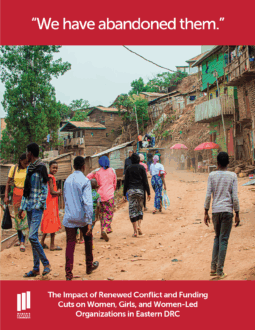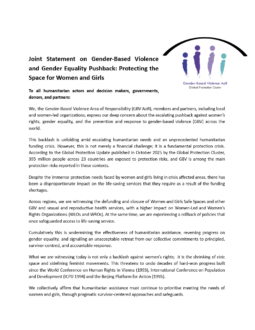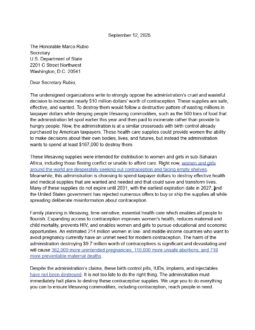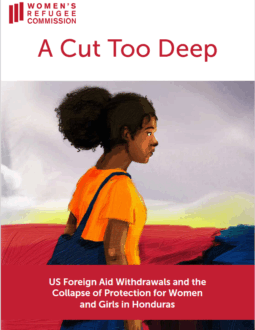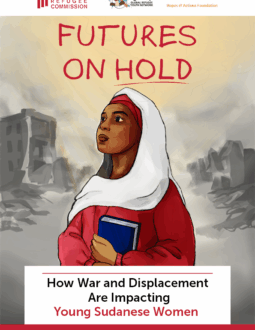Communities Care Initiative
Published | UpdatedHumanitarian emergencies often exacerbate the risk of gender-based violence (GBV), including sexual violence (SV) and intimate partner violence (IPV), yet programming for GBV prevention and response is often limited. Survivors of gender-based violence are often unable to access lifesaving, time-sensitive care, including emergency contraception and medication to prevent HIV after possible exposure. Over the past 15 years, the Women’s Refugee Commission (WRC) has worked to bolster prevention and response programming for GBV in humanitarian settings using innovative approaches to support survivors and their communities.
The “Communities Care: Transforming Lives and Preventing Violence” program is a comprehensive package of community-based interventions to prevent and respond to GBV, in humanitarian settings, including a toolkit to train community health workers (CHWs) to provide clinical care and referrals for survivors, and community sensitization programming to promote care-seeking for GBV survivors.
In 2021, WRC, alongside implementing partners Profamilia and Reproductive Health Uganda and research partners Universidad de los Andes and Makerere University School of Public Health, launched a pilot project based on the Communities Care program model. The overall goal of the project was to implement and evaluate the safety, feasibility, and efficacy of community-based clinical care for SV survivors in refugee and host communities in Uribia, Colombia and Adjumani, Uganda.
Communities Care
- Getting Started Guide (English)
- Getting Started Guide (Spanish)
- Facilitator's Manual (English)
- Facilitator's Manual (Spanish)
- Participant's Packet (English)
- Participant's Packet (Spanish)
- HIV Flipbook (English)
- HIV Flipbook (Spanish)
- Sexual Violence Flipbook (English)
- Sexual Violence Flipbook (Spanish)
- Evauation Tools (English)
- Evaluation Tools (Spanish)
Colombia Baseline Report
Colombia Endline Report
Uganda Baseline Evaluation Report
Reaching Survivors Where They Are
Community-Based Sexual and Gender-Based Violence Prevention and Response in Humanitarian Settings


